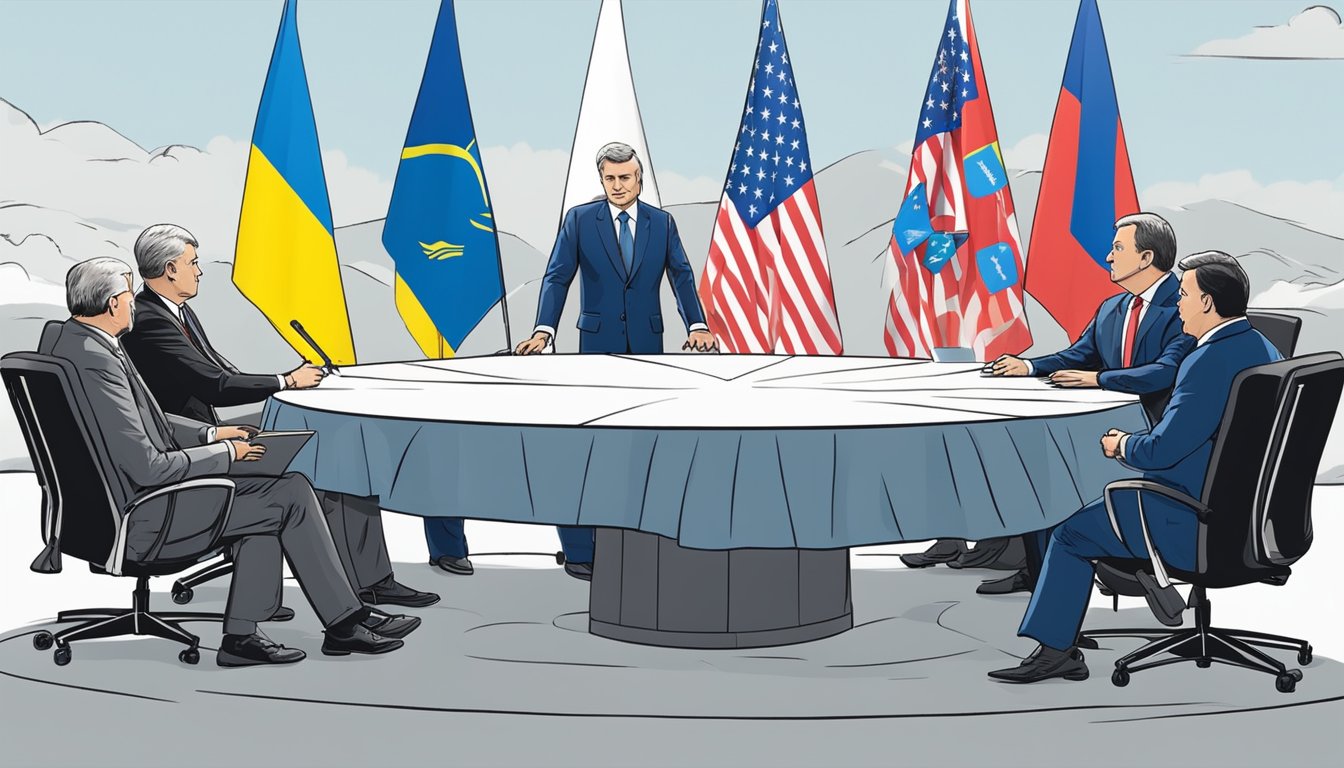As Donald Trump steps into the presidency, he is keenly aware that ending the conflict in Ukraine could be one of his earliest challenges.
The approach he takes on this front may significantly shape his broader foreign policy agenda.
Trump stands at a crossroads: he can either choose to distance the U.S. from Ukraine—a nation fiercely defending its independence—and pressure it to relinquish territory and adopt a neutral stance, risking severe repercussions.
On the other hand, he could craft an offer that prompts Russian President Vladimir Putin to engage more favorably.
Strategic Considerations
Deciding to pull back U.S. military support from Ukraine would parallel Trump’s earlier attempts to curb congressional approval for aid, a strategy he employed to project himself as a proponent of peace during the election cycle.
However, his critiques of President Biden’s exit from Afghanistan raise the stakes.
A retreat from Ukraine could spiral into catastrophic consequences, undermining the global order established post-World War II, emboldening Putin to encroach on more former Soviet territories, and encouraging Xi Jinping to adopt aggressive military maneuvers regarding Taiwan.
Negotiating From Strength
Understanding the geopolitical landscape, Trump likely recognizes the importance of maintaining a robust international presence.
A perception of failure could tarnish his reputation and complicate future foreign policy efforts.
In this context, it would be wise for Trump to work closely with both Ukrainian officials and U.S. allies to formulate a strategic plan that might gain Putin’s favour.
The underlying strategy should focus on establishing a position of strength before entering negotiations.
Retired Lt. Gen. Keith Kellogg, whom Trump has appointed as the Ukraine/Russia envoy, seems to appreciate the need for leverage before discussions.
Historically, Trump has favored negotiating from a position of power.
Recently, NATO Secretary General Mark Rutte stressed the necessity of strengthening Ukraine’s negotiating capabilities prior to any talks concerning a ceasefire or peace agreement.
After enduring years of conflict, both Ukrainian and Russian leadership show signs of fatigue and may now be more open to exploring negotiated solutions, despite lingering doubts about Putin’s willingness to accept anything less than total submission from Ukraine.
Long-Term Implications
The battlefield situation throughout 2024 has remained relatively static.
While Ukraine enjoyed some notable successes, including bold offensives into the Kursk province, Russian forces have continued to make slow, costly incursions into Donbas.
The dynamics of the conflict have been influenced by the arrival of North Korean troops, a shift in the Russian economy toward a war footing, and substantial reliance on support from China.
Future negotiations will likely revolve around two major themes: territorial disputes and security guarantees for Ukraine.
Resolving territorial disagreements may prove simpler than establishing adequate security assurances.
With the expectation of stagnant conditions on the battlefield in 2025, Ukraine might be willing to temporarily accept Russian control over certain territories, as long as it retains the option to diplomatically reclaim them in the future.
Holding parts of Kursk gives Ukraine leverage for negotiations with Putin.
President Zelensky has hinted at a possible willingness to make territorial concessions, provided they are offset by substantial long-term security guarantees for the areas yet to be occupied—a potential format echoing West Germany’s NATO membership model.
While security guarantees for Ukraine are essential, they pose a more complex challenge in negotiations.
Although immediate NATO membership with full Article 5 protections would be ideal, it seems unlikely under Trump’s administration.
Instead, the focus should be on establishing clear mutual defense commitments that surpass the assurances outlined in the 1994 Budapest Memorandum.
Ideally, these would be accompanied by the deployment of European forces on Ukrainian territory to deter renewed Russian aggression, with the presence of these peacekeepers remaining until NATO allies are prepared to consider membership discussions.
To nudge Putin toward accepting these terms, Trump could threaten a significant surge in military support for Ukraine across NATO, should he encounter resistance.
This could involve lifting restrictions on U.S. long-range strike capabilities, a tactic that previously yielded success in Iraq, and might be complemented by intensified sanctions.
In anticipation of Trump’s presidency, Putin has likely been reassessing his strategy in Ukraine.
A compelling negotiating proposal could prompt him to rethink his current approach and potentially frame it as a victory.
Such a shift could empower Ukraine in its diplomatic efforts to achieve a long-lasting ceasefire and restore a significant portion of its pre-invasion sovereignty, even if a full military victory remains elusive.
Furthermore, it may be beneficial for Trump to seriously weigh this “final offer” if European allies are willing to shoulder a larger portion of NATO’s defense responsibilities.
This includes not just support for Ukraine but also within a broader framework.
For instance, if European nations could pledge to create a new transatlantic alliance that provides over half of NATO’s collective defense capabilities and funding for all non-Article 5 operations, it could alleviate Trump’s concerns about the contributions of allies.
This commitment could be paired with a proposal to raise NATO defense investment from the current 2% to at least 3% of GDP.
The time has come for Europe to assume a more prominent role in ensuring regional security and defense.
This shift could foster an environment ripe for Trump to work collaboratively with U.S. allies, reinforcing that Europe is ready to uphold its part in achieving a just peace for Ukraine and balancing defense responsibilities within NATO.
Alexander Vershbow is a distinguished fellow at the Atlantic Council and serves as a senior advisor at the University of Pennsylvania’s Perry World House.
He has held roles as U.S. ambassador to NATO and Russia, assistant secretary of defense, and NATO deputy secretary general.
Hans Binnendijk is a distinguished fellow at the Atlantic Council and previously served as senior director for defense policy at the National Security Council, vice president of the National Defense University, and legislative director for the Senate Foreign Relations Committee.
Source: Militarytimes

